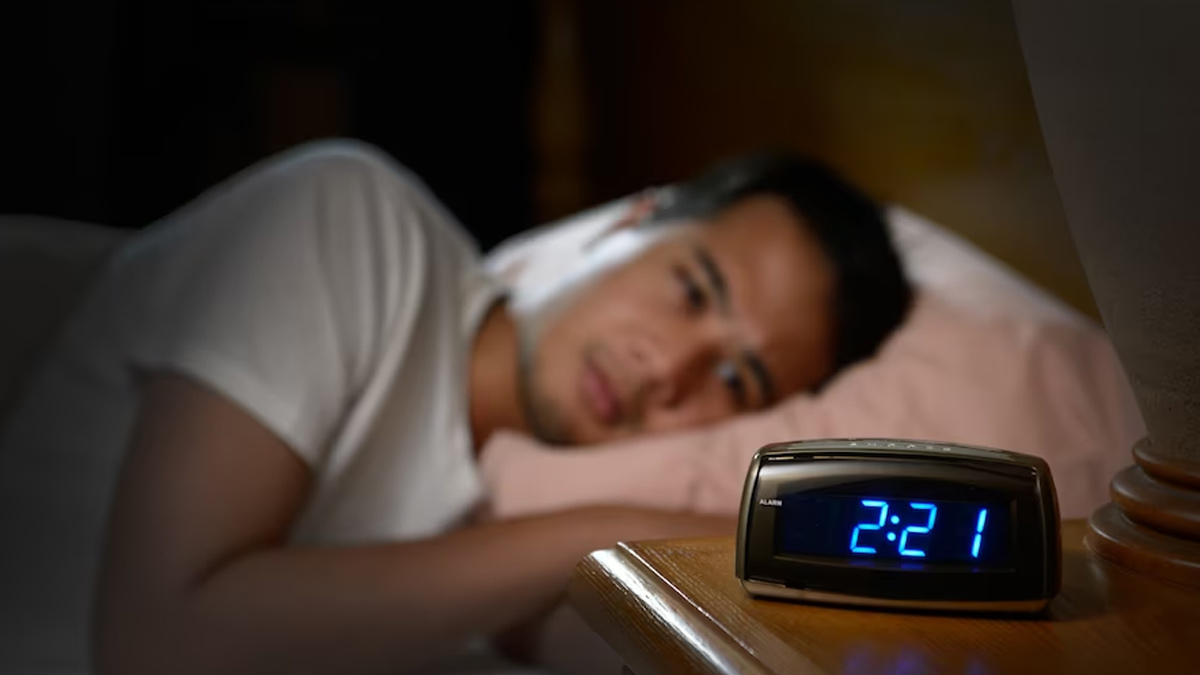
While exercise is undoubtedly essential for overall health, its relationship with sleep has sparked a long-standing debate. One common question that often arises is whether exercising before bedtime can either help or hinder sleep quality. To shed light on the same, we spoke to Dr Pradeep Mahajan, Regenerative Medicine Researcher, and Founder, StemRx BioScience Solutions, India, who explained the science behind exercising before bed and its potential impact on your sleep.
Table of Content:-
The Physiology of Sleep

To understand the relationship between exercise and sleep, it's crucial to grasp the basics of the sleep cycle. Dr Mahajan said, “Sleep consists of several stages, including Rapid Eye Movement (REM) and non-REM phases. Deep, restorative sleep primarily occurs during the early part of the night, with REM sleep typically dominating later stages.”
He added, “Exercise has been consistently linked to improved sleep quality. It can help reduce symptoms of insomnia and contribute to falling asleep faster. Regular physical activity is associated with better sleep, and people who engage in it often report fewer sleep disturbances. However, the timing of exercise can influence how it affects sleep.”
According to a meta-analysis conducted by Sports Medicine (Auckland, New Zealand), which assessed 23 studies regarding evening exercise and its impact on sleep, it was found that evening physical activity can enhance sleep quality when performed at a moderate intensity, rather than a vigorous one, and ended more than an hour before bedtime.
Also Read: Do You Experience Sudden Jerks During Sleep? Expert Explains Its Causes And Management Measures
Exercising Before Bed: The Pros and Cons

Dr Mahajan listed the pros and cons of exercising before bed as follows:
Pros Of Exercising Before Bed
- Body temperature regulation: Exercise elevates body temperature, and post-exercise, the body naturally cools down. This cooling effect can be conducive to falling asleep, as it mimics the body's natural temperature drop that occurs during the early stages of sleep.
- Stress and anxiety reduction: Exercise releases endorphins, which can alleviate stress and anxiety, two factors often associated with sleep disturbances.
- Improved sleep architecture: Some studies suggest that late-night exercise may enhance sleep architecture, leading to a more balanced sleep cycle.
Cons Of Exercising Before Bed

- Elevated heart rate: Intense exercise raises heart rate and adrenaline levels, making it difficult for some individuals to relax and fall asleep immediately after working out.
- Sleep disruption: Intense exercise close to bedtime can disrupt the transition into the deeper stages of sleep, potentially reducing overall sleep quality.
- Individual variation: The effects of late-night exercise on sleep can vary widely from person to person. Some may find it energising, while others may feel overstimulated.
Also Read: Why Am I Always Sleepy? Experts Explain The Reasons And Role Of Mattress Quality
The Ideal Timing for Exercise

The ideal timing for exercise largely depends on individual preferences and how one's body responds to physical activity. Dr Mahajan noted, “It is recommended to avoid vigorous exercise within two-three hours of bedtime. This allows the body to return to its baseline temperature and physiological state, promoting a smoother transition into sleep.”
He added, “However, mild to moderate exercise, such as yoga or stretching, can be more suitable for those who prefer late-night workouts. These activities are less likely to elevate heart rate significantly and may promote relaxation.”
Bottomline
Dr Mahajan concluded, “In the ongoing debate on whether exercising before bed affects sleep, the answer largely depends on the individual and the type of exercise performed. While exercise in general can have a positive impact on sleep quality, vigorous activities close to bedtime may disrupt sleep for some individuals.”
Therefore, it's crucial to pay attention to your body's response and tailor your exercise routine accordingly. Ultimately, finding the right balance between physical activity and sleep is key to achieving a good night's rest and overall well-being.”
[Disclaimer: This article contains information provided by a registered healthcare professional and is for informational purposes only. Hence, if you have sleep disorders, consult your expert for a treatment tailored to your needs.]
Also watch this video
Read Next
Choosing the Best Cardio Equipment for Home Workouts: Treadmill, Exercise Bike, or Rowing Machine
How we keep this article up to date:
We work with experts and keep a close eye on the latest in health and wellness. Whenever there is a new research or helpful information, we update our articles with accurate and useful advice.
Current Version